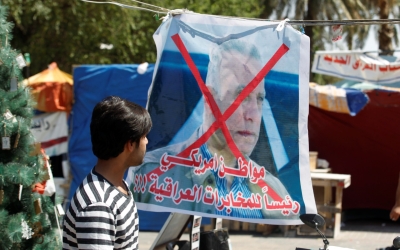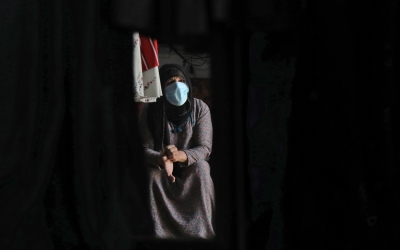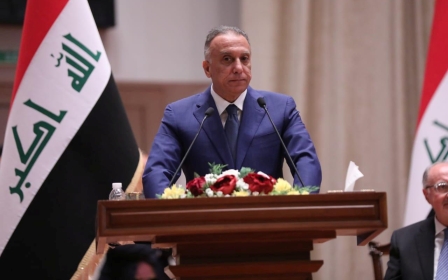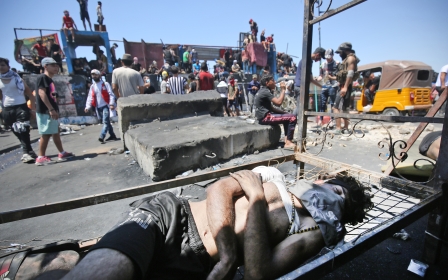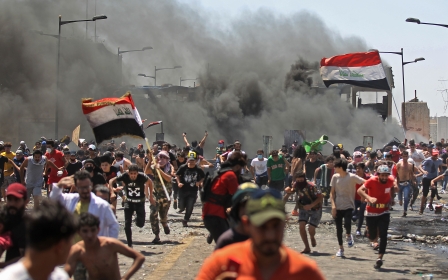US and Iraq begin talks on American troop levels, resurgence of Islamic State group
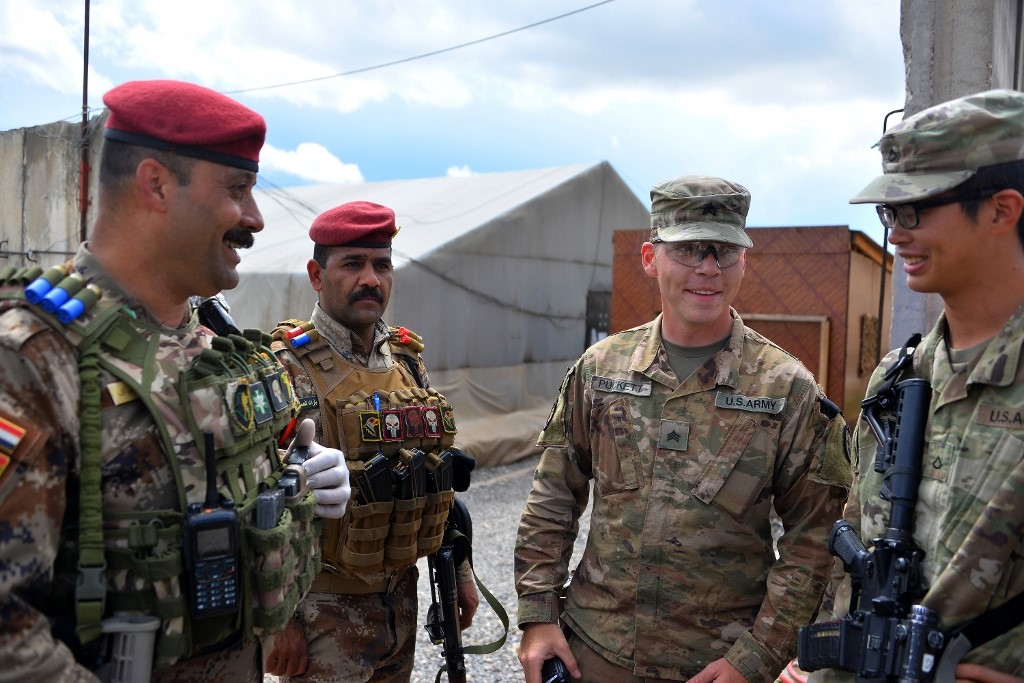
The United States and Iraq began much-anticipated strategic talks on Thursday, aimed at improving bilateral relations and addressing the future of the US-led military coalition in the country.
The top-level talks, originally set to take place in Baghdad, were instead demoted to a brief online kick-off session as Iraq faces a spike in coronavirus cases.
Iraq is also grappling with a resurgence of the Islamic State (IS) group and a financial crisis - issues that threaten to stoke tensions for the country's new US-friendly prime minister.
Mustafa Kadhimi - an ex-spy chief with close ties to the US and its allies in the region - took the reins as Iraq's premier in May, but even with a US ally leading Baghdad, a major breakthrough is unlikely.
With so many variables on the negotiating table, expectations for the first day of strategic dialogue between Iraq and the US in a decade have been tempered, experts say.
New MEE newsletter: Jerusalem Dispatch
Sign up to get the latest insights and analysis on Israel-Palestine, alongside Turkey Unpacked and other MEE newsletters
"The entire US-Iraq bilateral relationship will not be fixed in a single day," said Robert Ford, an analyst at the Middle East Institute and a US diplomat in Baghdad during the last round of strategic talks in 2008, which ironed out the US drawdown from the occupation that began after the 2003 invasion.
Olive branch for Kadhimi
Tensions between Washington and Baghdad simmered in January, when a US drone strike near Baghdad airport killed top Iranian general Qassem Soleimani and Iraqi militia commander Abu Mahdi al-Muhandis, prompting Iraqi lawmakers to vote in favour of ousting all foreign troops.
At the time, relations between the two countries were already strained amid sporadic deadly rocket attacks on American military and diplomatic sites that began last year.
Washington threatened crippling sanctions, according to US military sources, and began planning a bombing campaign against groups blamed for the rockets.
Still, tensions have calmed since Kadhimi came to power last month.
Two Iraqi officials told the AFP news agency that Kadhimi has been invited to the White House this year, a diplomatic olive branch that his predecessor Adel Abdel Mahdi never received.
"There was a lack of confidence in the relationship with the previous government, and we're not there anymore," one of the officials said.
Troops in the balance
The main discussion point during the talks, which may drag on for months, is the fate of US-led troops deployed in Iraq from 2014 to lead a coalition fighting against IS.
Currently there are about 5,200 American troops in the country, whose main missions are counterterrorism and training Iraqi forces. Pentagon officials have said they believe they can do the job with about half that number, according to the New York Times.
The coalition has handed over several bases in recent months and currently occupies only three, with the talks likely bring a further drawdown.
"There are no details yet on troop levels, but the US draft on a joint statement mentions a 'reduction of US forces'," a senior Iraqi official told AFP.
Middle East Eye reported in February that the US military had offered a partial pullback of troops in response to January's parliamentary vote that called for foreign forces to leave the country.
Still, a sudden decrease could hamper the coalition's efforts to support an Iraqi fightback against IS sleeper cells, which have escalated their attacks in recent weeks.
"The talks will focus on the need for Iraq and America to fight IS; in light of that we will make a decision," Kadhimi told reporters on Wednesday.
General Kenneth McKenzie, the commander of US forces in the region, said on Wednesday that it was his "belief that the government of Iraq is going to want to retain US and coalition forces."
"And as you know, from my perspective, we're in Iraq to finish the defeat of ISIS and to support Iraq as they finish that defeat and come to a final, final victory against it," he said in an online conference sponsored by the Washington-based Middle East Institute.
Other members of the 29-country US-led coalition are watching from the sidelines, with no formal role in the negotiations.
"The ability of non-US members of the coalition to be in Iraq depends on whether the US can stay. We're tied down by this dialogue, too," a Western diplomat told AFP.
Non-US forces of the coalition have already been reduced by half, to about 1,200 troops, because of the coronavirus pandemic, the Times said.
No US cash for Iraq's economy
One area where Iraq may see only limited progress is aid for its collapsing economy. Kadhimi has said his government may be unable to pay the salaries of public sector employees, or pay pensions and benefits, with about $5bn a month needed to cover the government payroll.
Officials fear such an outcome could stoke widespread unrest, threaten the new government and see public institutions, including oil fields, targeted by angry protesters.
Iraq's economy relies almost exclusively on oil exports, which make up 90 percent of the state treasury’s resources.
Faltering prices and low demand have drastically shrunk Iraq's monthly revenue, leaving Baghdad scrambling to pay wages, pensions and welfare to eight million Iraqis.
Also, a waiver protecting it from US sanctions as it imports gas from neighbouring Iran for its dilapidated power sector is due to expire in late September.
"With new threats on the horizon, including the global coronavirus pandemic, collapsed oil prices and a large budget deficit, it's imperative that the United States and Iraq meet as strategic partners to plan a way forward for the mutual benefit of each of our two nations," US Secretary of State Mike Pompeo said on Wednesday.
Middle East Eye delivers independent and unrivalled coverage and analysis of the Middle East, North Africa and beyond. To learn more about republishing this content and the associated fees, please fill out this form. More about MEE can be found here.


